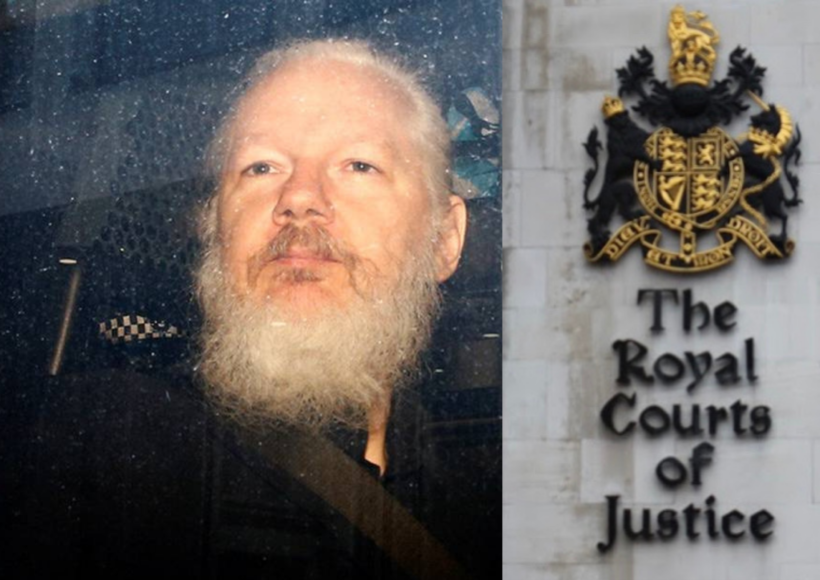As you are no doubt aware, Julian Assange appeared at a further court hearing last week.
We regret to report that he looked aged and unwell as a result of his continued incarceration.
The High Court hearing on 11 August, held at the Royal Courts of Justice in central London, was scheduled in order to allow prosecutors on behalf of the U.S. government to challenge an earlier ruling made by Justice Jonathan Swift on July 7 in which he granted the appeal, but limited the arguments to three of the five proposed legal grounds for such a challenge (as elucidated here).
Prosecutors argued that they should be allowed to appeal on all five of the issues raised, and were in fact successful in doing so in front of Lord Justice Timothy Holroyde and Justice Dame Judith Farbey.
The hearing was covered by most of the world’s media, but here is some coverage we found to be insightful, critical and easy to follow:
- Assange High Court appeal: U.S. granted appeal on all grounds, overturning earlier ruling – Tareq Haddad, TareqHaddad.com, August 11
- British High Court expands US Government’s appeal in Assange extradition case – Kevin Gosztola and Mohammed El Maazi,, August 11
- Julian Assange could be extradited to the US – Chip Gibbons, Jacobin, August 11
- The end game: WikiLeaks’ Julian Assange is dying in a UK prison – Scott Ludlam, The Monthly, August 1
For those of you interested in inspecting the corresponding legal documents from the hearings in full, we have attached the defence’s “Notice of Objection to the Appeal” and the prosecution’s “Perfected Grounds of Appeal” for your reference. They are also available online here and here.
Now that the legal grounds of appeal have been settled, we now proceed to the substantive elements of the appeal process. Two days of hearings have been scheduled for October 27 and 28—taking Assange’s imprisonment to a minimum of two and a half years, though yet to be found guilty of any offence.
In other recent developments for those that may have missed them, there was a big revelation published in the Icelandic publication Stundin in which it emerged that a key witness in the U.S. prosecution’s case had fabricated his evidence. The U.S. heavily relied on this evidence to assert that Assange was engaged in soliciting hacking of confidential information.
We believe the article is a strong demonstration that despite 10 years into this prosecution, there are yet many stones that have been left unturned and we urge those of you who have capacity as journalists to continue seeking evidence of discrepancies and foul play. We would encourage you to share these with us at contact@speak-up-for-assange.org and we would be more than glad to circulate them.
As always, we thank you for your time in reading these updates and we look forward to being in touch again in due course.
—
#JournalistsSpeakUpForAssange










